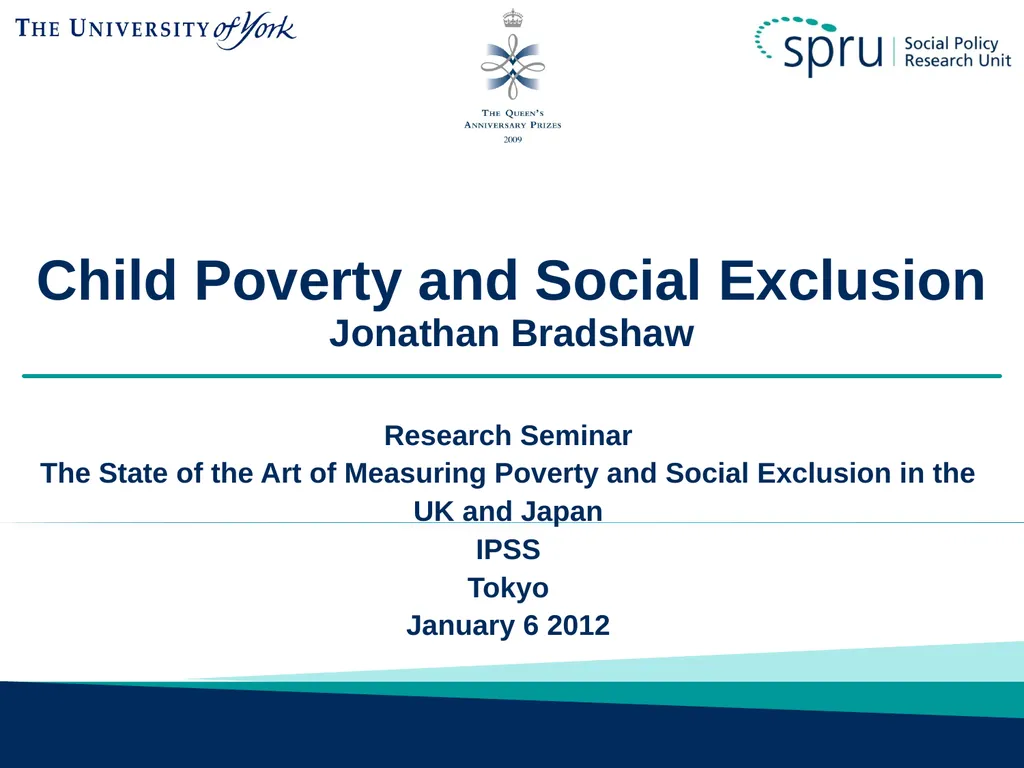
Author : natalia-silvester | Published Date : 2025-05-23
Description: Child Poverty and Social Exclusion Jonathan Bradshaw Research Seminar The State of the Art of Measuring Poverty and Social Exclusion in the UK and Japan IPSS Tokyo January 6 2012 In the UK child poverty targets missed child poverty nowDownload Presentation The PPT/PDF document "" is the property of its rightful owner. Permission is granted to download and print the materials on this website for personal, non-commercial use only, and to display it on your personal computer provided you do not modify the materials and that you retain all copyright notices contained in the materials. By downloading content from our website, you accept the terms of this agreement.
Here is the link to download the presentation.
"Child Poverty and Social Exclusion Jonathan"The content belongs to its owner. You may download and print it for personal use, without modification, and keep all copyright notices. By downloading, you agree to these terms.













